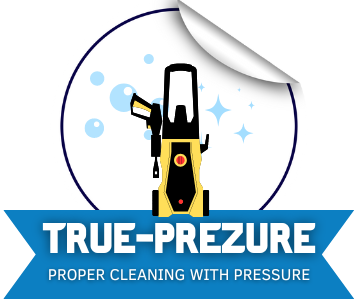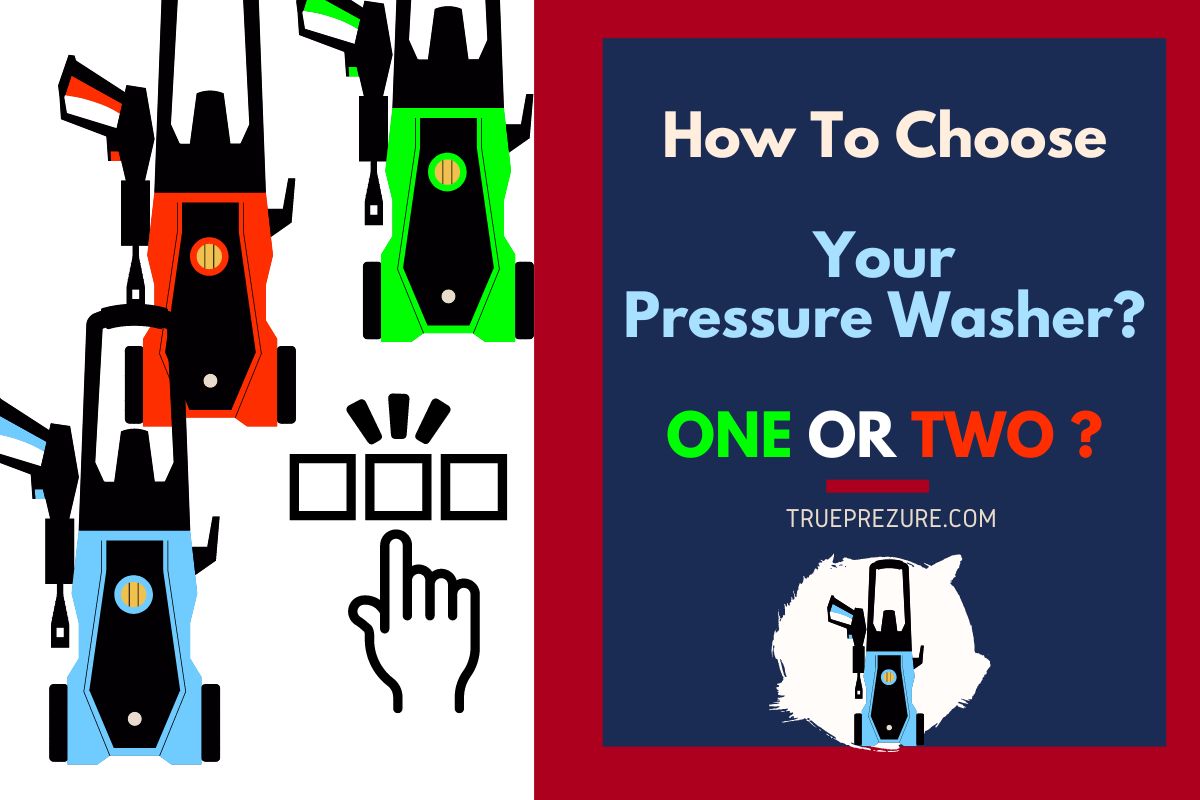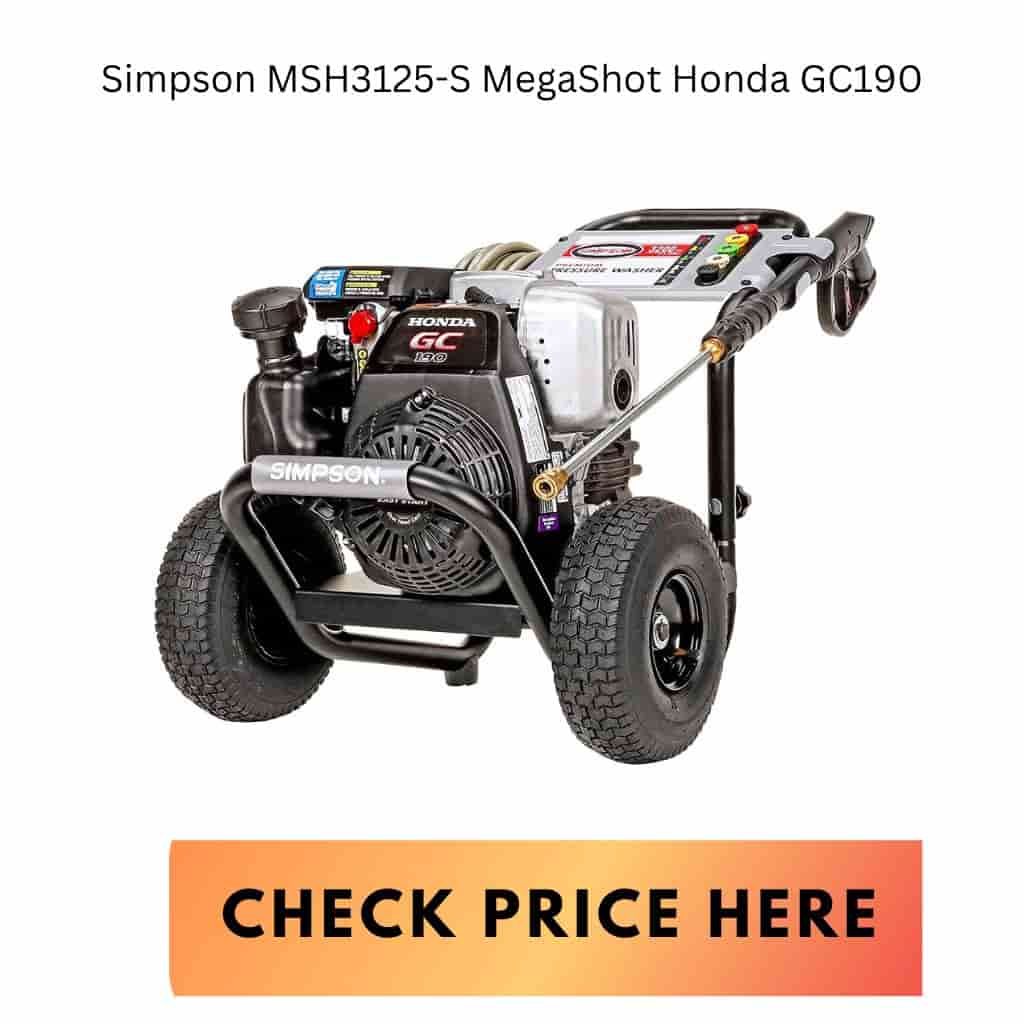Are you tired of using a bucket and sponge to clean your outdoor surfaces? It’s time to upgrade to a pressure washer! but How to Choose Pressure Washer?
With so many options on the market, it can be overwhelming trying to choose the right one. But don’t worry, we’ve got you covered with our guide on How to Choose Pressure Washer in 2023.
From suitable surfaces for pressure washers, extra features, safety risks, renting vs buying and which type of pressure washer is best for you – we’ll help you make an informed decision that will leave your outdoor spaces looking cleaner than ever before!
how to choose pressure washer in 2023
1.Suitable Surfaces for Pressure Washers
When it comes to pressure washing, not all surfaces are created equal. Some materials can withstand the force of a high-powered pressure washer without any damage, while others require more delicate treatment.
Concrete is one surface that can handle the power of a pressure washer. It’s perfect for removing tough stains and dirt buildup from driveways, sidewalks, and other outdoor surfaces,Solar Panels, Clean Car Cloth Floor Mats, Wood Deck, Windows,
Best Surface Cleaner for Electric Pressure Washer- Full Guide
Brick is another surface that benefits from pressure washing. It can remove years’ worth of grime and moss buildup on brick walls or patios.
Wooden decks also benefit from being cleaned with a pressure washer. However, you need to be careful when using one as too much water pressure could lead to splintering or damage your deck’s finish.
On the other hand, some surfaces should never be washed with a high-pressure stream of water like windows and fragile tiles. These types of surfaces may crack under the forceful impact or sustain severe damages due to improper cleaning techniques.
In summary, understanding which surfaces are suitable for your pressure washer will help you get optimal results without damaging your property in 2023.
2.Pressure Washer Parts
When it comes to pressure washers, understanding the different parts is essential in choosing the right one for your needs. Here are some of the key components you should know about:
1. Pump: This is what generates water pressure and flow rate. Pumps can be driven by gas or electric motors.
2. Engine/Motor: This provides power to run the pump, either through gasoline or electricity.
3. Hose: The hose connects the pressure washer to a water source and allows you to direct the spray where needed.Can You Use Flexible Hose with Pressure Washer?
4. Wand/Lance: The wand/lance directs water from the pump onto surfaces being cleaned.
5. Nozzle: There are different types of nozzles with varying degrees of spray angles that determine water pressure intensity and coverage area.
6. Detergent Tank/Injector: Some models have built-in detergent tanks while others require an external injection system for soap dispersal during cleaning.
Understanding these parts will help you make an informed decision when choosing a pressure washer that’s best suited for your specific cleaning needs!
How Much Oil Goes in a Pressure Washer Pump-Full Guide
3.Extra Features
When shopping for a pressure washer, it’s important to consider the extra features that come with each model. These features can make your cleaning tasks easier and more efficient.
One feature to look for is an adjustable nozzle. This allows you to adjust the spray pattern from a narrow stream to a wider fan shape, making it easier to clean different surfaces.
Another useful feature is a detergent tank or dispenser. This lets you apply soap or other cleaners directly through the pressure washer, saving time and effort compared to applying them separately.
Some models also include wheels or handles for easy maneuverability, especially if you’ll be moving your pressure washer around frequently.
For those concerned about environmental impact, some models offer eco-mode settings that reduce water usage while still providing sufficient cleaning power.
These extra features may not be essential but they can certainly make your cleaning tasks quicker and more effective.
4.Safety Risks
When operating a pressure washer, it is important to be aware of the potential safety risks involved. One of the most significant hazards is the high-pressure water stream that can cause serious injuries or even amputations if not handled properly. Always wear protective gear such as eye goggles and gloves when using a pressure washer.
Another risk associated with pressure washers is electric shock. Be sure to use an outlet equipped with ground fault circuit interrupter (GFCI) protection and keep electrical components dry at all times.
Additionally, using chemical cleaners in conjunction with a pressure washer can pose health risks if ingested or inhaled. Always read labels carefully and follow manufacturer instructions when using chemicals.
It’s also crucial to be mindful of your surroundings when using a pressure washer – avoid directing the spray towards people, animals, or fragile items like windows or screens.
By following safety guidelines and taking necessary precautions, you can prevent accidents while still achieving great results from your pressure washing tasks.
5.Hearing Protection
When using a pressure washer, it is important to consider the safety risks, especially when it comes to protecting your hearing. Pressure washers can produce a lot of noise, ranging from 70-100 decibels depending on the model and power source.
Exposure to high levels of noise for an extended period of time can cause permanent damage to your ears. Therefore, it’s crucial that you wear proper hearing protection while operating a pressure washer.
There are several types of hearing protection available such as earplugs or earmuffs. Earplugs fit directly into your ear canal and provide a snug fit that blocks out most external sounds. Earmuffs cover your entire ear and offer more protection against louder noises.
It’s recommended that you choose the type of hearing protection that feels comfortable for you and provides adequate noise reduction based on the specific model of pressure washer you’ll be using.
By taking steps to protect your hearing while using a pressure washer, you can ensure safe operation without risking long-term damage to one of our most valuable senses – our ability to hear!
6.Renting vs. Buying
When it comes to choosing a pressure washer, you may wonder whether to rent or buy. Renting a pressure washer can be a good option if you only need to use it once or twice a year for small cleaning tasks. However, if you plan on using it frequently for larger projects, buying one may make more sense in the long run.
Renting a pressure washer can cost anywhere from $40-$100 per day depending on the type of machine and your location. While this may seem like an affordable option initially, this cost can add up quickly over time if you are regularly renting.
On the other hand, purchasing a pressure washer allows you to have access to it whenever needed and eliminates the ongoing rental costs. Additionally, owning your own machine gives you greater control over its maintenance and upkeep which ensures that it is always ready when needed.
Before making your decision between renting or buying, consider carefully how often you will use the pressure washer and for what purposes. This will help guide your decision towards what makes more financial sense in the long term.
Which Pressure Washer Should You Buy?
When it comes to choosing a pressure washer, you have three main options: gas, electric, and battery-powered. Each type has its own advantages and disadvantages, so it’s important to consider your specific needs before making a decision.
Gas Pressure Washers
Gas pressure washers are known for their high power and performance, making them a popular choice among homeowners and professionals alike. These machines are powered by gasoline engines, which provide more mobility than electric models because they don’t require an electrical outlet.
One of the biggest advantages of gas pressure washers is their high cleaning power, measured in PSI (pounds per square inch) and GPM (gallons per minute). This makes them ideal for tackling tough outdoor jobs like removing stubborn stains from concrete or brick surfaces, cleaning decks and patios, or stripping paint from exterior walls.
Kohler Vs Honda Engine Pressure Washer-Which Is Best
However, with great power comes greater responsibility. Gas pressure washers can be noisy and emit harmful fumes that require proper ventilation when used indoors. They also require regular maintenance to keep the engine running smoothly.
When selecting a gas pressure washer, consider factors like fuel efficiency, portability, nozzle options and warranty coverage before making your final decision. It’s important to choose a model that suits your specific needs to ensure you get the best results possible while avoiding any safety risks associated with operating these powerful machines.
Electric Pressure Washers
Electric pressure washers are becoming increasingly popular due to their convenience and ease of use. Unlike gas-powered pressure washers, electric models require no fuel or oil changes, making them more environmentally friendly and less costly in the long run.
Ryobi Vs Greenworks Pressure Washer winner in 2023
One advantage of electric pressure washers is that they operate quietly compared to gas-powered units. This makes them an ideal choice for residential areas where noise pollution can be a concern.
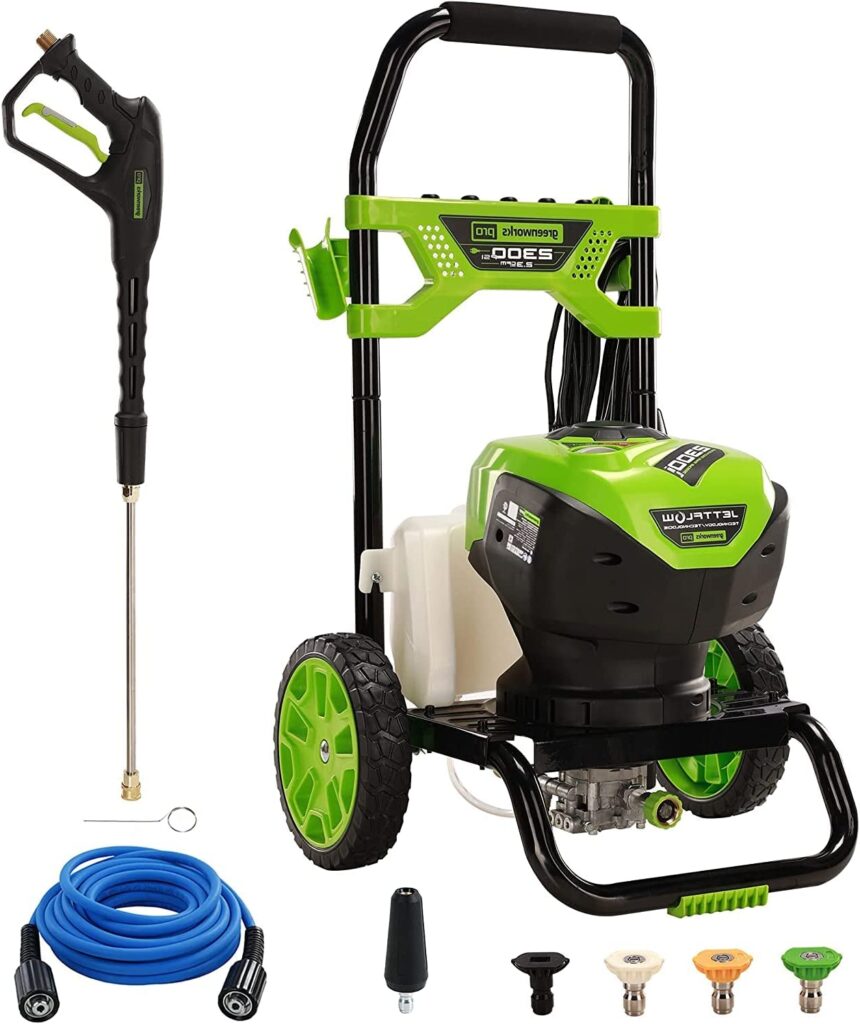
Another benefit of using an electric pressure washer is that they typically weigh less than their gas counterparts. This means that you don’t have to worry about lugging around a heavy machine when cleaning your outdoor surfaces.
When choosing an electric pressure washer, it’s important to consider the unit’s water flow rate (GPM) and pounds per square inch (PSI). Higher GPM rates mean faster cleaning times while higher PSI ratings indicate greater cleaning power.
If you’re looking for a reliable and efficient way to clean your home’s exterior surfaces without causing too much noise pollution or breaking the bank on fuel costs, then an electric pressure washer may be just what you need.
Battery Pressure Washers
Battery pressure washers are a recent addition to the market, and they’re becoming increasingly popular due to their convenience. They’re cordless, lightweight, and easy to maneuver around your property. Plus, they don’t emit any harmful fumes or require gas or oil.
These devices are powered by rechargeable batteries that can last anywhere from 20-40 minutes depending on the model you choose. While this may not seem like a lot of time, it’s typically enough for small cleaning jobs like washing your car or patio furniture.
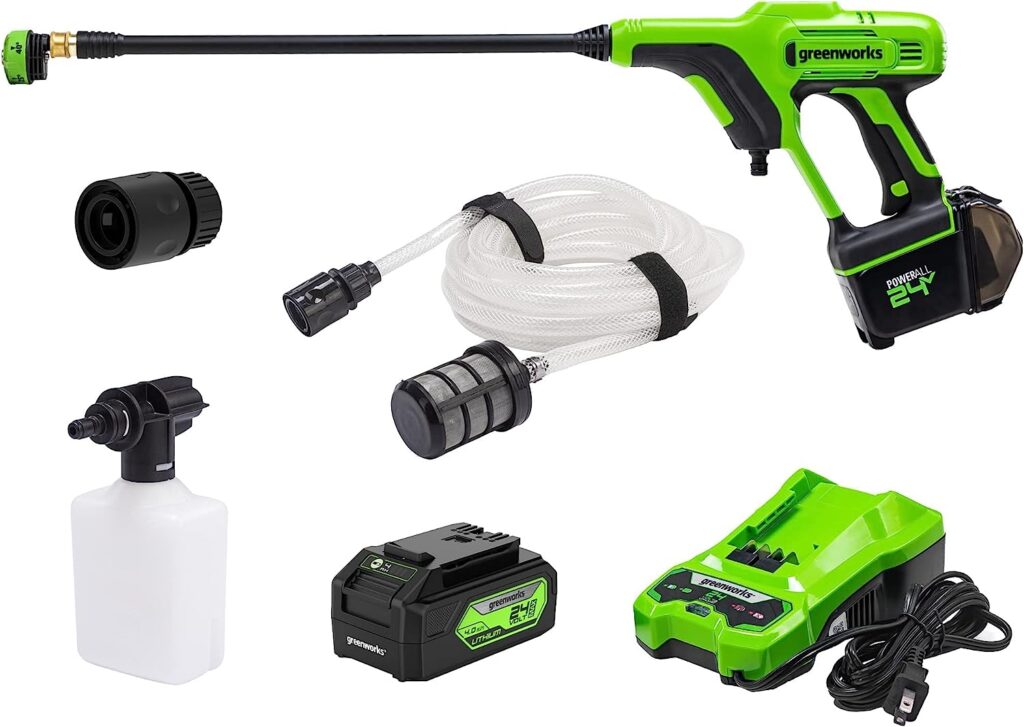
Click here for price check
When choosing a battery pressure washer, make sure to look at the PSI (pounds per square inch) and GPM (gallons per minute) ratings as these determine how powerful the device is. You’ll also want to pay attention to the nozzle options available as different nozzles provide different spray patterns.
One downside of battery pressure washers is that they may not be powerful enough for heavy-duty tasks such as cleaning concrete driveways or large decks. However, if you only need it for light cleaning around your home then a battery-powered option may be perfect for you.
Battery pressure washers offer an eco-friendly and convenient alternative to traditional gas or electric models.
How to Choose a Pressure Washer Nozzle
Choosing the right pressure washer nozzle is absolutely crucial to achieving the desired cleaning results. The nozzle you choose ultimately determines the angle and intensity of the water spray, so it’s vitally important to select one that perfectly matches your specific cleaning needs.
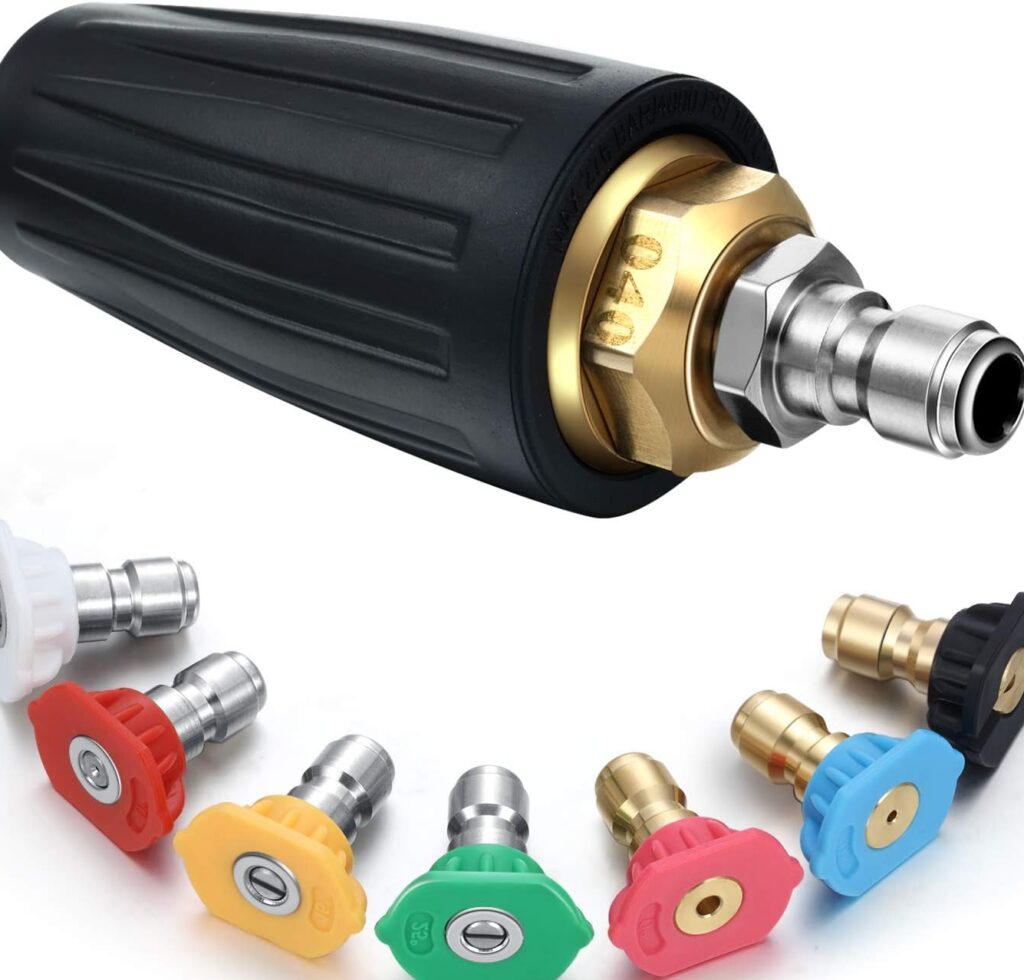
First and foremost, consider what you’ll be cleaning. For instance, a 0-degree nozzle provides an extremely narrow spray pattern and high intensity, which can be highly effective for removing stubborn stains from hard surfaces. However, it’s important to keep in mind that this nozzle could potentially damage more delicate materials like wood or paint.
On the other hand, a 15-degree nozzle offers a wider fan pattern with less intensity, making it ideal for cleaning concrete walkways or driveways without causing any harm. If you require even broader coverage, a 25-degree nozzle could be the right choice, as it offers a gentle spray with less pressure than the 15-degree option, making it perfect for rinsing away soap suds after washing your car.
Additionally, consulting your pressure washer manual is a critical step to ensure compatibility between your machine and the chosen nozzles. Ignoring this aspect and using incompatible nozzles could lead to serious injury or damage.
Always remember, when changing nozzles, turn off the power supply to avoid accidents, and take care to ensure that each connection is secure before starting up again!
What Is a Good Psi for a Pressure Washer?
One of the most common questions when it comes to pressure washers is, “What is a good PSI for a pressure washer?” The answer largely depends on what kind of cleaning task you have in mind. Generally speaking, higher PSI (pounds per square inch) means greater cleaning power.
For lighter tasks like washing cars or outdoor furniture, 1300-2000 PSI should suffice. For tougher jobs such as removing oil stains from concrete or stripping paint from surfaces, you’ll need something with at least 2500-3000 PSI.
How Do I Know Which Power Washer to Buy?
Choosing the right power washer depends on several factors. One of the key considerations is the type of cleaning tasks you will be doing and the frequency at which you’ll be using the machine.
If you’re planning to perform heavy-duty cleaning tasks or tackle tough stains, a higher PSI rating would be more suitable. This will provide the necessary force to effectively clean stubborn dirt and grime.
What Is More Important in a Pressure Washer Psi or Gpm?
When it comes to pressure washers, one of the most common questions is whether PSI or GPM is more important. The truth is that both factors play a significant role in determining the effectiveness of your pressure washer.
“In my opinion,” higher PSI ratings are better suited for tackling tough stains like oil or grease. The higher pressure can provide more force, making it more effective at removing stubborn stains from surfaces.
Is 1800 Psi Enough to Clean Deck?
If you’re wondering whether 1800 PSI is enough for deck cleaning, “in my view,” it depends on the specific job at hand. For light surface dirt removal, 1800 PSI should do just fine. I believe it can effectively clean away general dirt and grime on your deck.
Conclusion
Certainly! When it comes to choosing the right pressure washer in 2023, there are several factors that need to be carefully considered. These include the type of cleaning tasks you need the machine for, such as whether you require it for heavy-duty industrial use or for more light household tasks.
